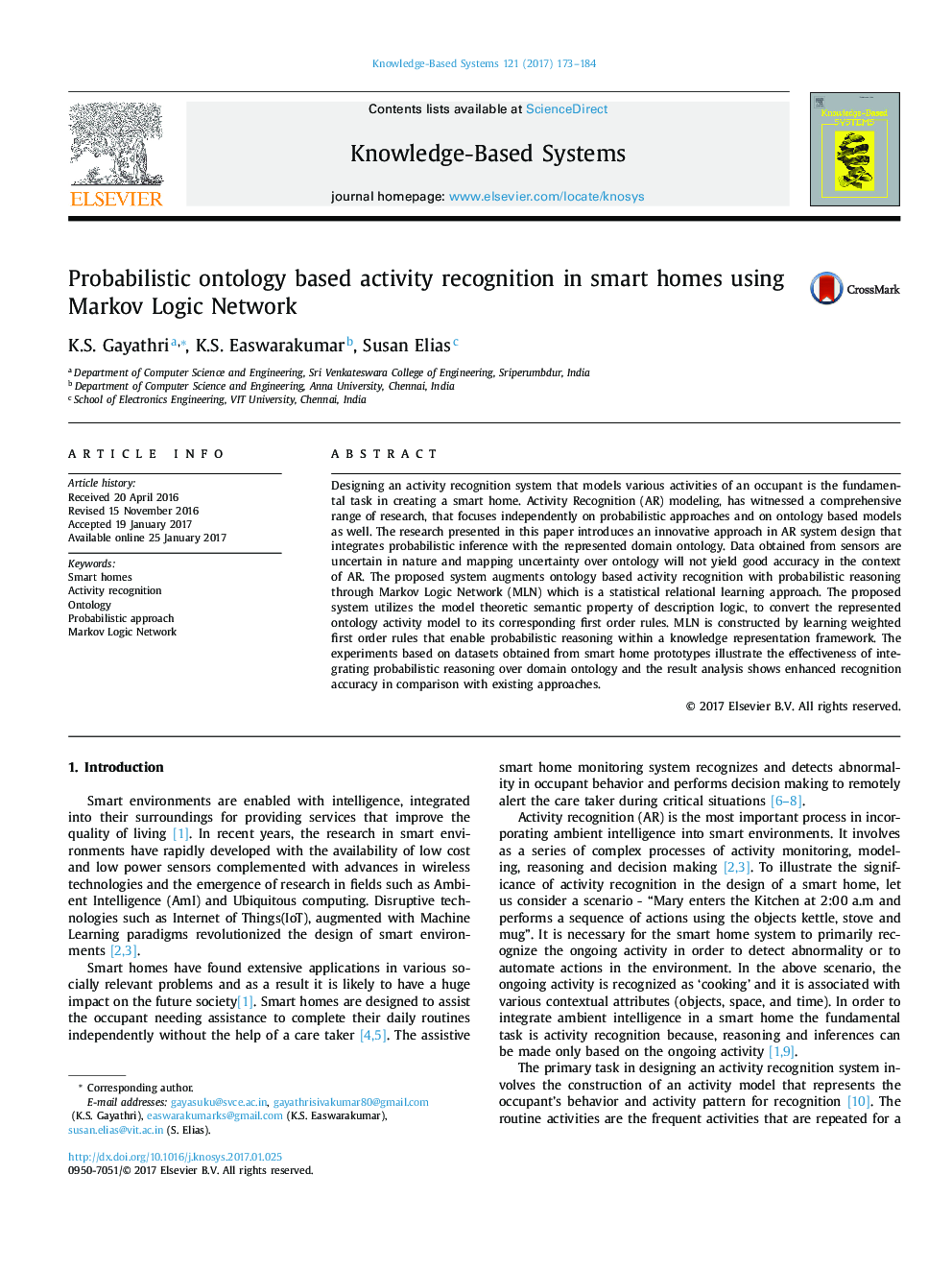| Article ID | Journal | Published Year | Pages | File Type |
|---|---|---|---|---|
| 4946274 | Knowledge-Based Systems | 2017 | 12 Pages |
Abstract
Designing an activity recognition system that models various activities of an occupant is the fundamental task in creating a smart home. Activity Recognition (AR) modeling, has witnessed a comprehensive range of research, that focuses independently on probabilistic approaches and on ontology based models as well. The research presented in this paper introduces an innovative approach in AR system design that integrates probabilistic inference with the represented domain ontology. Data obtained from sensors are uncertain in nature and mapping uncertainty over ontology will not yield good accuracy in the context of AR. The proposed system augments ontology based activity recognition with probabilistic reasoning through Markov Logic Network (MLN) which is a statistical relational learning approach. The proposed system utilizes the model theoretic semantic property of description logic, to convert the represented ontology activity model to its corresponding first order rules. MLN is constructed by learning weighted first order rules that enable probabilistic reasoning within a knowledge representation framework. The experiments based on datasets obtained from smart home prototypes illustrate the effectiveness of integrating probabilistic reasoning over domain ontology and the result analysis shows enhanced recognition accuracy in comparison with existing approaches.
Related Topics
Physical Sciences and Engineering
Computer Science
Artificial Intelligence
Authors
K.S. Gayathri, K.S. Easwarakumar, Susan Elias,
